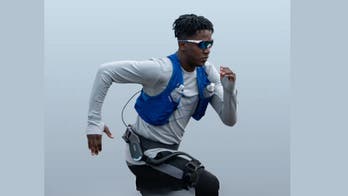A groundbreaking new technology has emerged, combining the capabilities of artificial intelligence (AI) and human voice characteristics. This advancement has the transformative potential to empower individuals who have lost their voices due to medical conditions, accidents, or other debilitating factors. Through the use of deep learning algorithms, AI voice-cloning technology can generate synthetic voices that mimic the original speakers with remarkable accuracy. This innovation opens up new possibilities for communication, restoring the ability to interact and express oneself for those whose voices have been compromised.

In the realm of medical breakthroughs, a groundbreaking development has emerged, offering a glimmer of hope to individuals who have lost their voices. Artificial intelligence (AI) voice-cloning technology has the potential to transform the lives of those grappling with speech impairments, providing them with a means to regain their ability to communicate.

One of the pioneers in this field is Lexi Bogan, a 21-year-old woman whose life was forever altered last summer when doctors removed a life-threatening tumor lodged near the back of her brain. As a result of the surgery, Bogan lost her voice, leaving her unable to speak or express herself clearly.
Determined to find a solution, Bogan and her medical team at Rhode Island's Lifespan hospital group turned to AI voice-cloning technology developed by OpenAI. This cutting-edge system was trained on a 15-second recording of Bogan's teenage voice, sourced from a cooking demonstration video she had recorded for a high school project.
The results were astonishing. Using a custom-built phone app, Bogan could now type in words or sentences and have them spoken aloud in a voice that sounded remarkably like her own. This transformative technology enabled Bogan to communicate with clarity and confidence, empowering her to engage in conversations, ask for assistance, and express herself in ways that had been impossible since losing her voice.
Bogan's remarkable journey serves as a testament to the transformative potential of AI voice-cloning technology. While still in its early stages of development, this technology holds immense promise for individuals with speech impairments, offering them a means to restore their voices and reclaim their ability to interact with the world around them.
The applications of AI voice-cloning technology extend beyond medical use cases. It has the potential to empower artists, researchers, and educators by providing them with a tool to create synthetic voices that can convey emotions, accents, and unique characteristics. As the technology continues to evolve, we can anticipate even more innovative and groundbreaking applications.
However, it is crucial to approach the development and use of AI voice-cloning technology with both excitement and caution. Concerns have been raised regarding potential misuse, such as the creation of deepfake voice messages and the violation of individuals' privacy. It is essential to establish ethical guidelines and regulations to ensure that this powerful technology is used responsibly and for the benefit of society.
As AI voice-cloning technology continues to advance, it is imperative that we embark on this journey with a commitment to responsible innovation and a deep understanding of the ethical implications. By working together, we can harness the transformative power of AI to create a world where everyone has a voice, regardless of their physical abilities.










